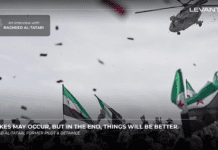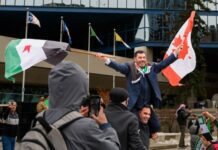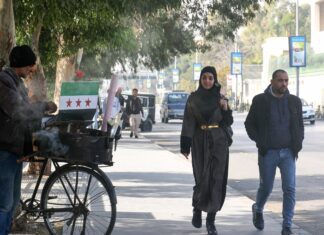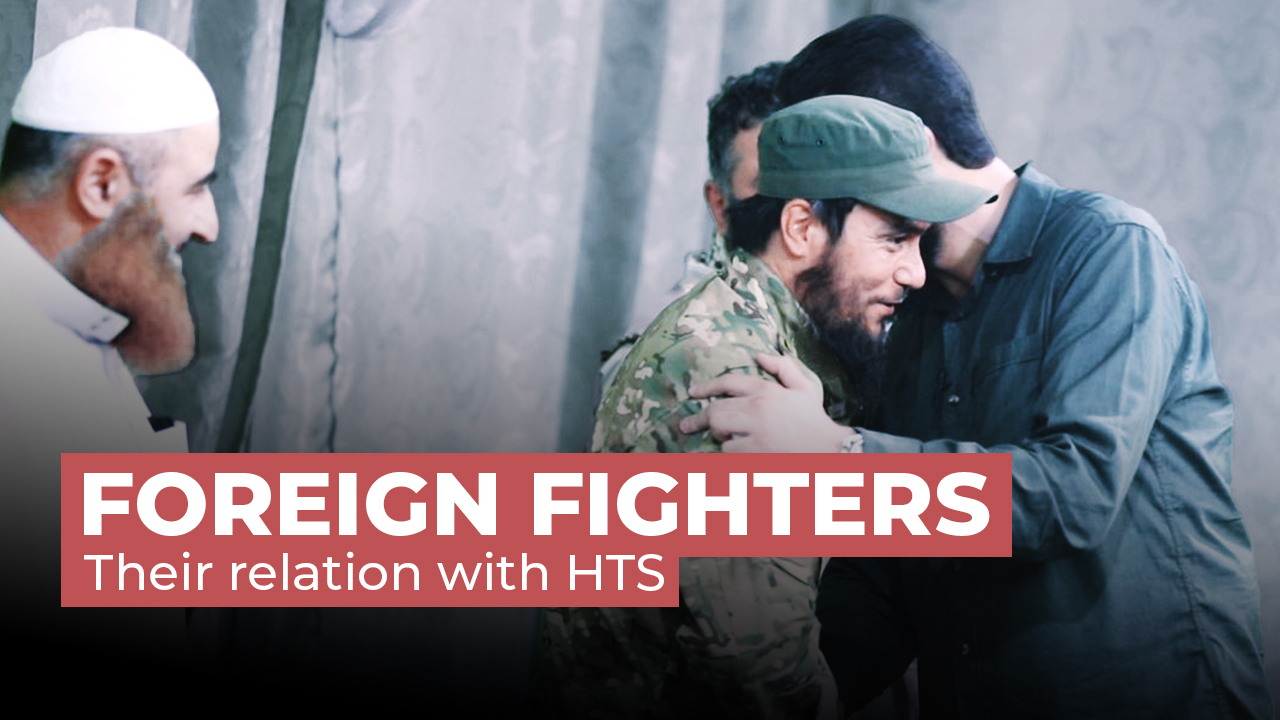 HTS was surrounded with controversy about the foreigners that came to Syria from around the world. They were, according to the rumors, targeted by HTS and it was accused of attempting to expel them from the Liberated Areas. The most recent event was the eviction of certain individuals from the Idlib city center that overwhelmingly were of foreign origin. It caused a huge controversy which prompted HTS to release a statement stipulating their reasons behind this decision. Stating that ” the decision includes everyone and is not specific to a certain party or nationality. It includes anyone that lives in these houses, be they with a group or not including HTS and does not exclude anyone.”
HTS was surrounded with controversy about the foreigners that came to Syria from around the world. They were, according to the rumors, targeted by HTS and it was accused of attempting to expel them from the Liberated Areas. The most recent event was the eviction of certain individuals from the Idlib city center that overwhelmingly were of foreign origin. It caused a huge controversy which prompted HTS to release a statement stipulating their reasons behind this decision. Stating that ” the decision includes everyone and is not specific to a certain party or nationality. It includes anyone that lives in these houses, be they with a group or not including HTS and does not exclude anyone.”
So, what is the relationship of HTS with the foreign fighters or Muhajirin? How large is the Muhajirin presence within HTS? How does HTS view Muhajirin on long term basis, do they see them as an obstacle or an asset? How do they balance between them being an asset and the counter-terrorism policies of the West?
[Editorial Note: The Muhajirin [or foreign fighters] refer to are not to be confused with foreigners that joined ISIS, they are considered ideologically and methodologically different.]
Hay’at Tahrir al-Sham was established in the year 2017, it was a coalition of the main revolutionary factions, it was spearheaded by Jabhat Fath al-Sham (formerly known as Jabhat Nusra). “The idea behind HTS is to build an inclusive Military coalition with a unified political project which can represent the liberated areas. It expresses the vision shared by the revolutionary factions from the political standpoint, and establishes a local project that focusses on fighting the Syrian regime and its allies, the Russians and Iranians, from the military standpoint. This was to be achieved by uniting the factions and therefore reducing their number which, in turn, would unite the capacities of the Syrian Revolution”, said the HTS Media Relations Office’s head, Taqi al-Din al-Omar.
Despite that several founding factions left HTS, the leadership of HTS continued their methodology of forming military coalitions to mitigate the geographical retreat which the arena has witnessed in the previous five years. HTS has also preserved its documented relationship with the largest Muhajir factions, like the Turkistani Islamic Party as well as other Arab and former Soviet-bloc formations. At the same time, HTS wasn’t negligent in removing hard-line factions from the revolutionary course. One such case was Liwa al-Aqsa, which ended in confrontation despite as HTS claims they “tirelessly tried to bury or solve the disagreements.”
Today, and after the Syrian regime, with Russian and Iranian support, has regained most of the regions which the revolutionary factions used to control in the southern and western parts of the country, only Idlib province and the northern Aleppo countryside remain under control of the revolutionary factions. Idlib became the stage of the largest military operations by the regime and their Russian ally. While their eyes are set on Idlib, the revolutionary factions are tirelessly working to organize their ranks and to unify their efforts in possible offensive or defensive military campaign. The eyes are set on HTS specifically, as it is the largest and most effective force in the province, and as such, the greatest responsibility lies on its shoulders.
Idlib based Khattabi Research Center (KRW), which concentrates on contemporary revolutionary wars, explained that “HTS tries to push towards a military formation that includes most, if not all, military factions in Idlib and its surroundings. Indeed, these recent efforts made by the local forces, with HTS at its head, have paid off, as a military operations room was established under the name of Fathul Mubeen which consists of the majority of military factions. Including HTS, SNL (Ahrar al-Sham, Suqur al-Sham, Faylaq al-Sham, Jaysh al-Ahrar, etc), and other factions that are mainly made up of Muhajirin like: The Turkistani Islamic Party, Ansar Tawhid etc.
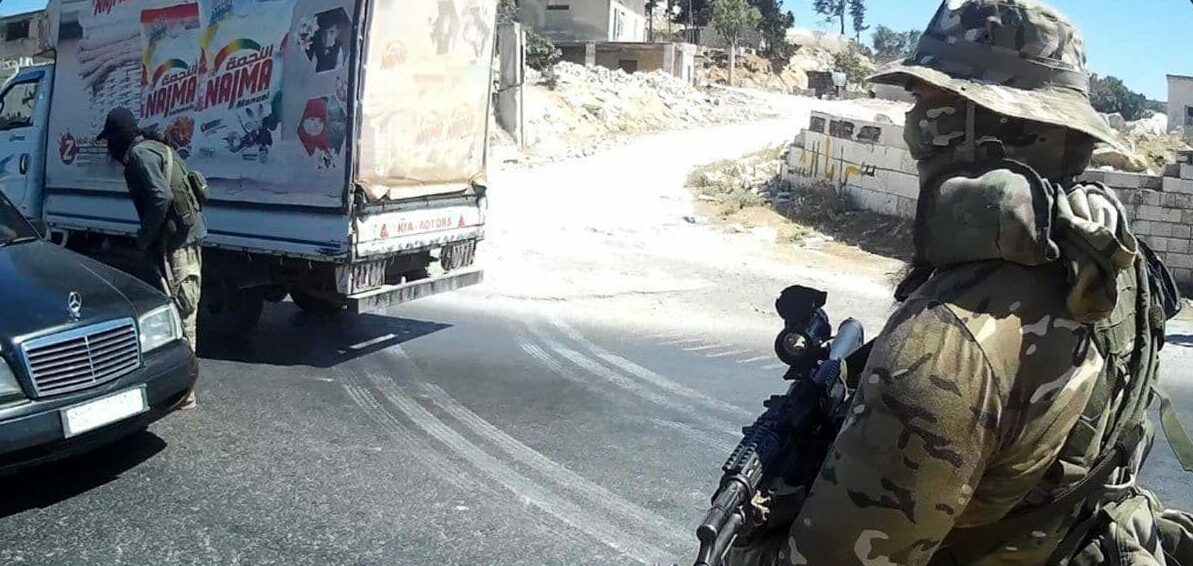
“Despite the seriousness of the impending danger and the urgency of unifying efforts, some [military] formations chose to work independently. Like the Fathbutu operations room, which was formed by several local military factions including Muhajirin. Their refusal to submit to the local authorities like the Salvation Government and their disassociation from the military authorities like Fathul Mubeen were some of their commonalities.” Despite creating the Fathbutu operations room “the factions in it were unable to tip the scales in their benefit in the northwestern region of Syria” expressed Taqi al-Din al-Omar.
This Fathbutu operations room consisted of five factions, as mentioned in their statement of establishment: Tansiqiyat al-Jihad (under the leadership of Abu ‘Abd Ashida), Liwa al-Muqatilin al-Ansar (under the leadership of Abu Malik al-Talli), Ansar al-Islam, Jabhat Ansar al-Din and Hurras al-Din (Syrian al-Qaeda offshoot).
Not a week had passed since the announcement of the formation of the operations room Fathbutu when the major immigrant groups like the Turkistani Islamic Party [TIP] and Tawhid wal Jihad [TWJ] in northern Syria announced a statement issued on June 18, 2020, titled “Gratitude and Support”, in which they declared their support for HTS and its policies in the region, stressing that “we are in support of however the Syrians decide to politically lead the country”. Which indicated their renunciation to the dispersion of efforts and the fragmentation of military forces into multiple operation rooms.
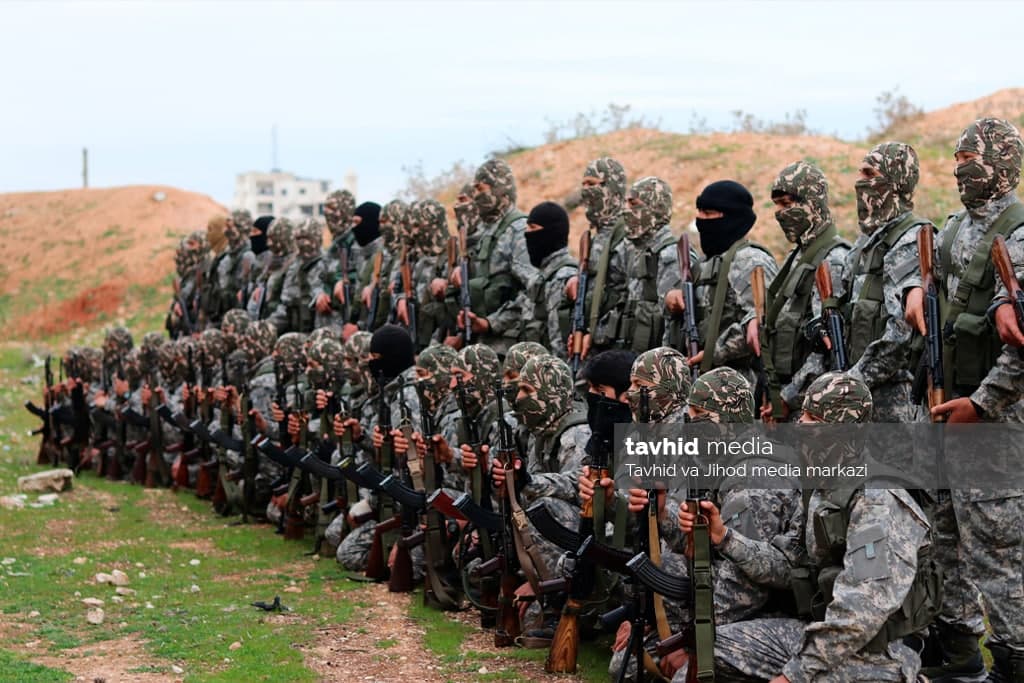
“The Fathbutu operations room did not heed these calls and the disagreements between them and HTS quickly evolved into on-and-off clashes with one of the Fathbutu member groups (Hurras al-Din) in West rural Idlib. These clashes ended after two sequential statements were released calling for the confrontations to cease, both statements were signed by both parties (Fathbutu and HTS)” explained the Khattabi Center. “The first statement required the infighting to stop, the checkpoints to be removed and to resolve matters in a court. The details in the second statement, however, were specified for stopping the infighting in the village of Arab Sa’eed. Despite the efforts to stop the infighting, it continued and ended in Hurras al-Din being disbanded. HTS subsequently made a unilateral decision to prohibit any new military formations.”
KRW further state: “The last step in banning any formation of groups and entities was, and still constitutes, a tacit demand by the revolutionary factions. The revolution has suffered many setbacks due to the large number of formations and, often, with an arbitrary nature. It also suffered from the fragmentation of revolutionary factions that lead to dispersal and waste of efforts with an inherent inability to achieve desired results.”
On 25th of October 2021, HTS conducted a military operation against an Azerbaijani majority group in the Turkmen Mountains in northern Latakia. After a series of negotiations that prolonged for 24 hours, which ultimately ended in failure, the operation commenced and targeted the Jundullah faction, a mainly Azerbaijani and Turkish group with some Syrians. Several accusations were raised against them including theft, excommunicating of Muslims, murder and providing refuge to fugitives.
Several months before, the commander Muslim Shishani of Junud al-Sham [Turkmen Mountains based group] came to attention when he claimed that HTS requested him to either partner with them under their command or to leave the Idlib province. Shishani in a statement also claimed that HTS told him HTS is the authority and it will not leave any military faction outside of its control.
HTS responded to the claims of Shishani through Taqi al-Din al-Omar, who said that Junud al-Sham harbored organized crime cells, including those that were active in the towns of Tal’ada and Kafr Takharim.
Going back to the conflict between Jundullah and HTS, in the Turkmen Mountains at the end of last October, the Junud al-Sham commander (Muslim Shishani) seemed to have formed an alliance with Jundullah to defend each other against any attack from HTS. This alliance was broken and, despite previous tensions, HTS quickly concluded an agreement with Junud al-Sham and allowed Muslim Shishani and his group to leave the area and avoid the fight. The fighting ended in HTS dissolving Jundullah.
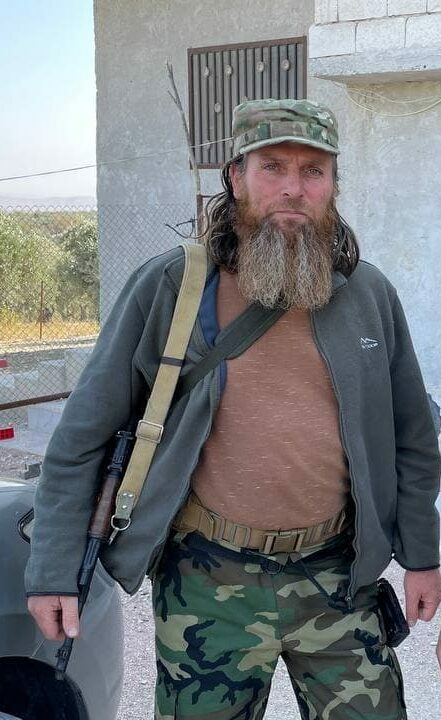
On the same day the clashes started, many muhajir personalities and commanders repeated their previous calls through a statement titled “A word of loyalty and an advice”, it was signed by the majority of muhajir groups and several muhajir notables. The statement renounced the actions of these muhajir factions (Jundullah and Junud al-Sham, Ed.) that possessed no significant military capabilities and committed violations, such as providing refuge to extremists and fugitives involved in criminal activities. The statement underlined the necessity in confronting criminals and to actualize security and stability in the region, likewise, it underlined the necessity of uniting efforts in the Fathul Mubeen operations room, which includes HTS, NLF and other factions.
Several critics of HTS accused the group that it aims to get rid of foreign fighters as a condition to acquire recognition by the West and to be considered as a stakeholder in the fight against terrorism. These recent developments prompted these accusations again, where some went even further and said that HTS has made deals with certain western intelligence agencies to hand over foreign fighters back to their countries of origin. On the other hand, there are also those that defend HTS’ policies which aims to put an end to the internal disunity in the Syrian arena, as they describe it.
KRW stated “Since the inception of HTS, it has strived to unify the arena. It has done so by creating military coalitions or by neutralizing those that fought their project, be they Syrian groups or Muhajir ones. Throughout the years, it has also aimed to position itself in the Islamic middle ground, and as such, they have successfully avoided becoming another breeding ground for ISIS. They have also been able to remain free from dictation of foreign entities. In short, HTS’ military maneuvers against other factions were, as HTS considers it, obstacles in the path of the revolution that had to be removed.”
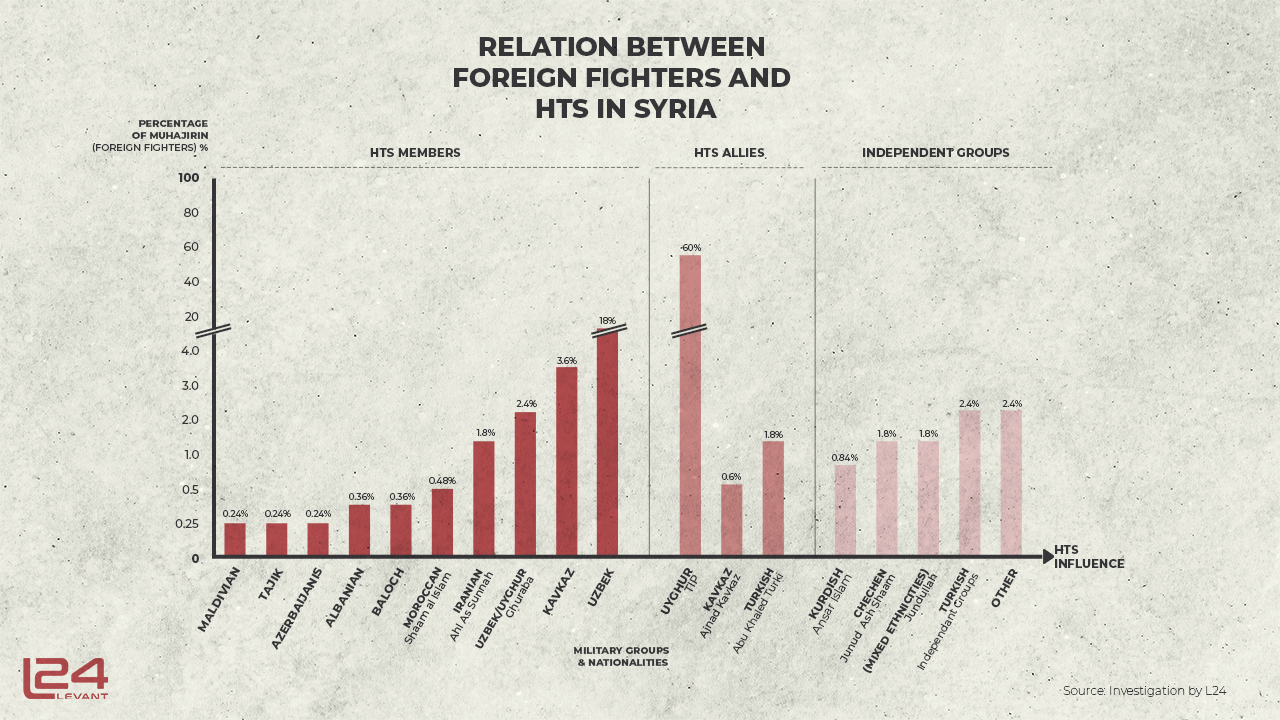 We spoke to a number of these formation’s commanders and we posed them some questions about the cooperation with HTS. The General Commander of Tawhid wal Jihad Battalion “Abu Abdul Aziz al-Uzbeki” says that their affiliation to HTS was self-motivated. He also noted that, presently and according to him, HTS is among those “closest to the truth”.
We spoke to a number of these formation’s commanders and we posed them some questions about the cooperation with HTS. The General Commander of Tawhid wal Jihad Battalion “Abu Abdul Aziz al-Uzbeki” says that their affiliation to HTS was self-motivated. He also noted that, presently and according to him, HTS is among those “closest to the truth”.
Humam Ahmad, media relations office manager in the Turkistani Islamic Party [TIP], was asked about the nature of the relation between TIP and HTS, he said: “We came to defend the Syrian people, we weren’t forced by HTS to ally with them. We cooperate with HTS to defend the liberated areas and we assist each other like we assist other factions in this region”. Humam added “Unity is required for success in this revolution, it’s upon the Muhajirin to obey the authorities or whoever represents that role when complete authority isn’t present. We have witnessed the circumstances in the liberated areas before it was managed, chaos was prevailing and, as such, having unified authorities is a good thing and we all must work for the liberated areas’ success.”
KRW questions the small groups and say “Certain claims raised by some of the HTS’s opponents locally, such as those accusing the HTS of trying to impose authority on everyone and forcing the military formations to work within the unified military operations room, is a question worth analyzing. The question should be directed to the small groups that insist on staying in this arbitrary manner. What is their reasoning which causes them to refuse military coordination with the majority of the revolutionary forces in Idlib?”
“Moreover, the efforts made by the revolutionary movements to defend the liberated at this critical stage, despite their weak capabilities, compared to the privileges that the enemy has in terms of support and military power from the second most powerful military country around the world, should be appraised accordingly. Likewise, those that truly wish to defend the liberated areas must extensively support this formation instead of walking the opposite path.” “Then we have another question, do groups like Jundullah (100-150 members) and Junud al-Sham (70 members) represent a great obstacle to the great nations in taking control of the region? While at the same time, there are other larger factions with thousands of members in that same region.” KRW continues “These smaller factions hold very few military points and they can be counted on a single hand. Meanwhile, one faction of the Fathul Mubeen Operations Room, like Faylaq al-Shaam, holds more than 100 military points, and like it, there are many other larger factions included in this military operations room in the liberated areas.”
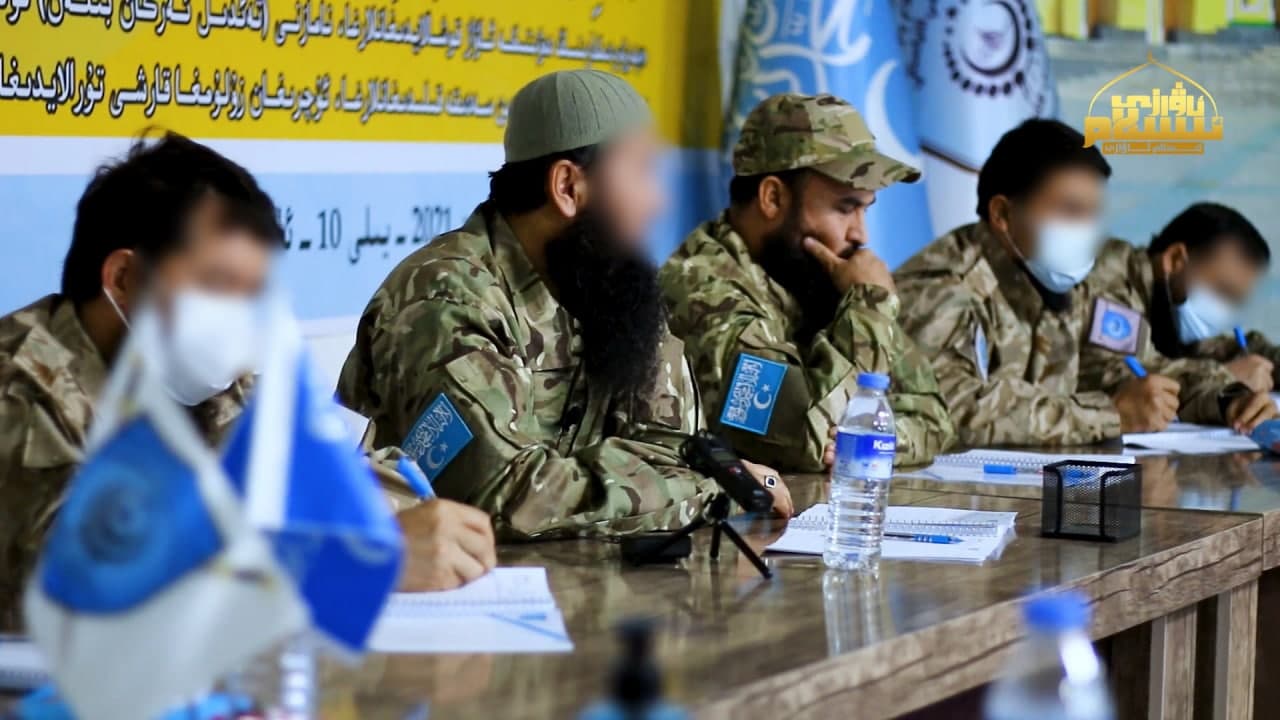
Taqi al-Din al-Omar answered several of our questions and said: “Protecting the Muhajirin, or any Muslim for that matter, is a religious obligation, especially those that stood side by side with the oppressed Syrian people in their just cause against the Assad regime and their allies. It is an obligation upon us to honor this loyalty and to show our appreciation. The Muhajirin have assimilated well into society and are committed to the same principles and goals of this revolution, which the Syrians believe in. They have, after 10 years, become a part of this society, and we believe the best place for them is to be with us in the Liberated Areas.”
When we asked him about the controversy regarding the pressure or imprisonment of certain Muhajirin, like Muslim -Shishani, he said: “We make no distinction between Muhajir or Syrian, we have no issue or dispute with anyone except that which is related to certain behaviors and practices. If anyone commits a crime then they are subjected to the law. As for our policy, then there has been no change in the general stance. In the case of Muslim Shishani, he went against the military leadership in the area, several of his members were involved in criminal cases. The leadership of these groups were asked to assist in arresting the transgressors and holding them to accountability, but the case was neglected from their part.”
Taqi al-Din noted that the battle fronts are open to all that wish to work. He added in regards to the rumors about HTS wanting to expel and surrender the Muhajirin to foreign parties: “This is a great fabrication and a clear lie, this behavior is against our religion and culture, rejected by our entire society. Like we have clarified earlier, HTS, and especially the Muhajirin, do not constitute any danger to anyone, our battle is with the Assad regime and his allies inside Syria.”
With an overwhelming majority of the Muhajirin cooperating with HTS, it seems that the nature of the relationship between them and HTS is a symbiotic one, as both parties assist and rely on each other. The course of organizational transformation that HTS experienced has, without a doubt, affected the Muhajirin formations. Where most of these groups used to operate quasi-independently, they now seem to have acknowledged HTS’ authority in both military and civilian affairs, placing them under the direct control of HTS with some autonomy retained over their personnel and internal organization. The reorganization of these formations brings them under one central command which enables them to confront the largest remaining challenge, which is the military threat on the Greater Idlib countryside.
HTS defined the preservation of foreign fighters as a fundamental pillar in their constitution and are working to embody the remaining formations within its structure, focusing efforts on the local Syrian issue, which is the project to overthrow the Assad regime and end the Iranian and Russian occupation.

